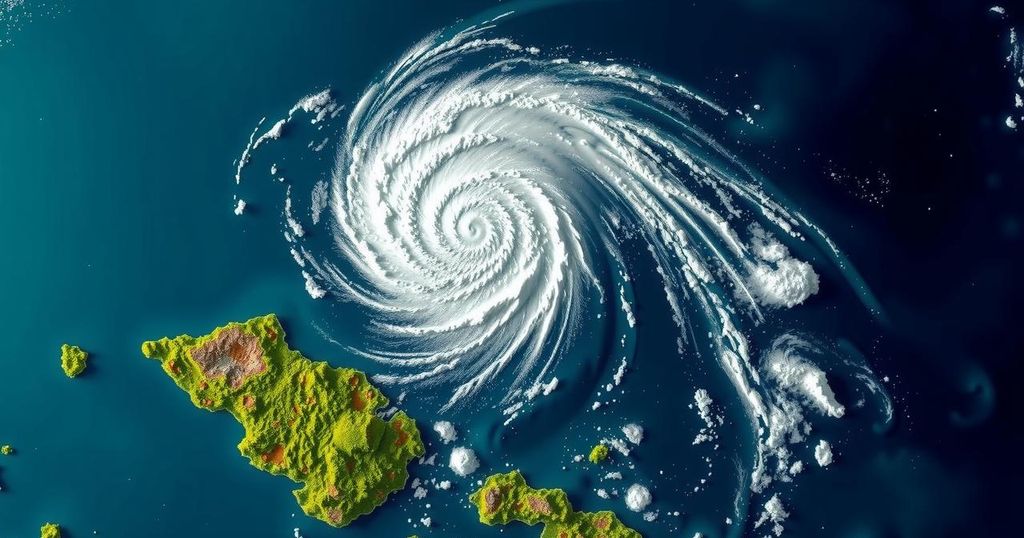Tropical Cyclone “Bheki” Affects Mauritius and Réunion with Mixed Forecasts

Tropical Cyclone “Bheki” passed near Mauritius and Réunion on November 21, 2024, with winds of 74 km/h. It may strengthen temporarily but is expected to weaken due to drier conditions thereafter. Moderate rain is anticipated in both regions through November 25, representing the second storm of the 2024/25 cyclone season.
Tropical Cyclone “Bheki” made its presence felt near the islands of Mauritius and Réunion on November 21, 2024. With sustained winds reaching 74 km/h (46 mph), it delivered moderate rainfall to the region while the forecast for its future strength remained uncertain. Despite exhibiting tropical characteristics, including a warm core, this cyclone’s capacity for development was hampered by limited warm air and strong upper-level winds. As of 09:00 UTC on November 22, the cyclone had slowed its movement, currently positioned southwest of La Réunion due to local geographic influences. However, it is anticipated to continue moving southwest and may accelerate as it departs from the island.
Satellite imagery indicates a resurgence of convective activity, raising hopes for potential strengthening. However, as it later confronts a shift in the jet stream and encounters drier atmospheric conditions, Bheki is expected to diminish in strength. Predictions by various weather models present differing outcomes; while the HWRF model suggests a temporary increase in strength, the HAFS-A model predicts a stabilization before a rapid weakening phase. Over the coming days, moderate rain is expected to persist across the regions of Mauritius and Réunion. Notably, Bheki stands as the second named storm of the 2024/25 South-West Indian Ocean Cyclone season and has been recorded as the strongest November tropical cyclone to date in this basin.
Tropical Cyclones, such as “Bheki,” pose significant threats to island nations, particularly in the Indian Ocean region. Understanding the meteorological conditions that contribute to their formation and behavior is crucial in predicting their impact. Factors such as sea surface temperatures, atmospheric pressure, and upper-level winds heavily influence a cyclone’s strength and trajectory. The southern Indian Ocean is known for its cyclone season, typically spanning from November to April, during which warmer ocean temperatures can fuel storms, making cyclone monitoring essential for disaster preparedness and response efforts.
In summary, Tropical Cyclone “Bheki” has affected Mauritius and Réunion, producing moderate rainfall alongside uncertain forecasts regarding its future strength. While current conditions suggest potential for short-term strengthening, expected interactions with unfavorable atmospheric conditions may lead to weakening. The ongoing situation requires careful monitoring as the cyclone progresses southwest, impacting both landmasses until the 25th of November.
Original Source: watchers.news







